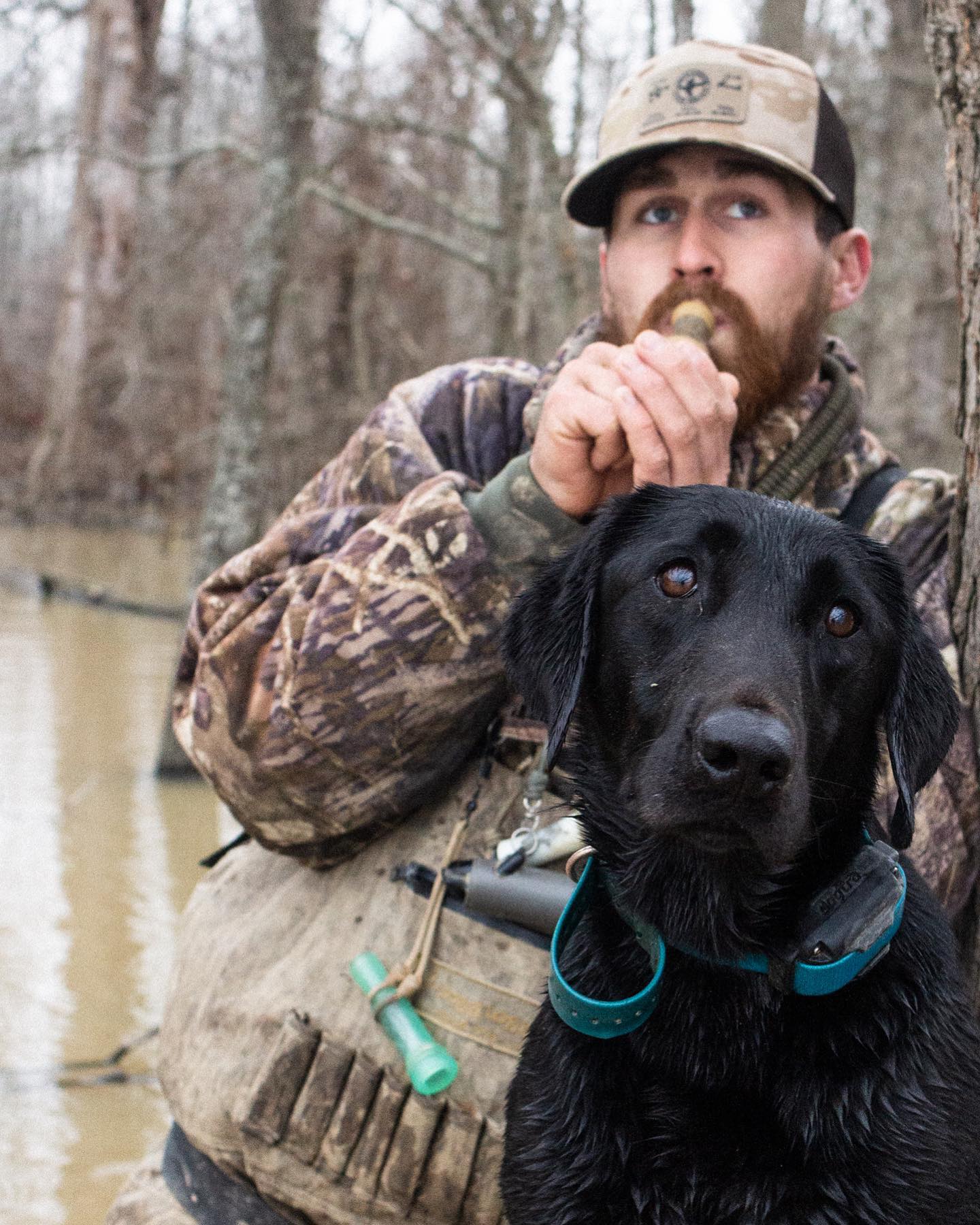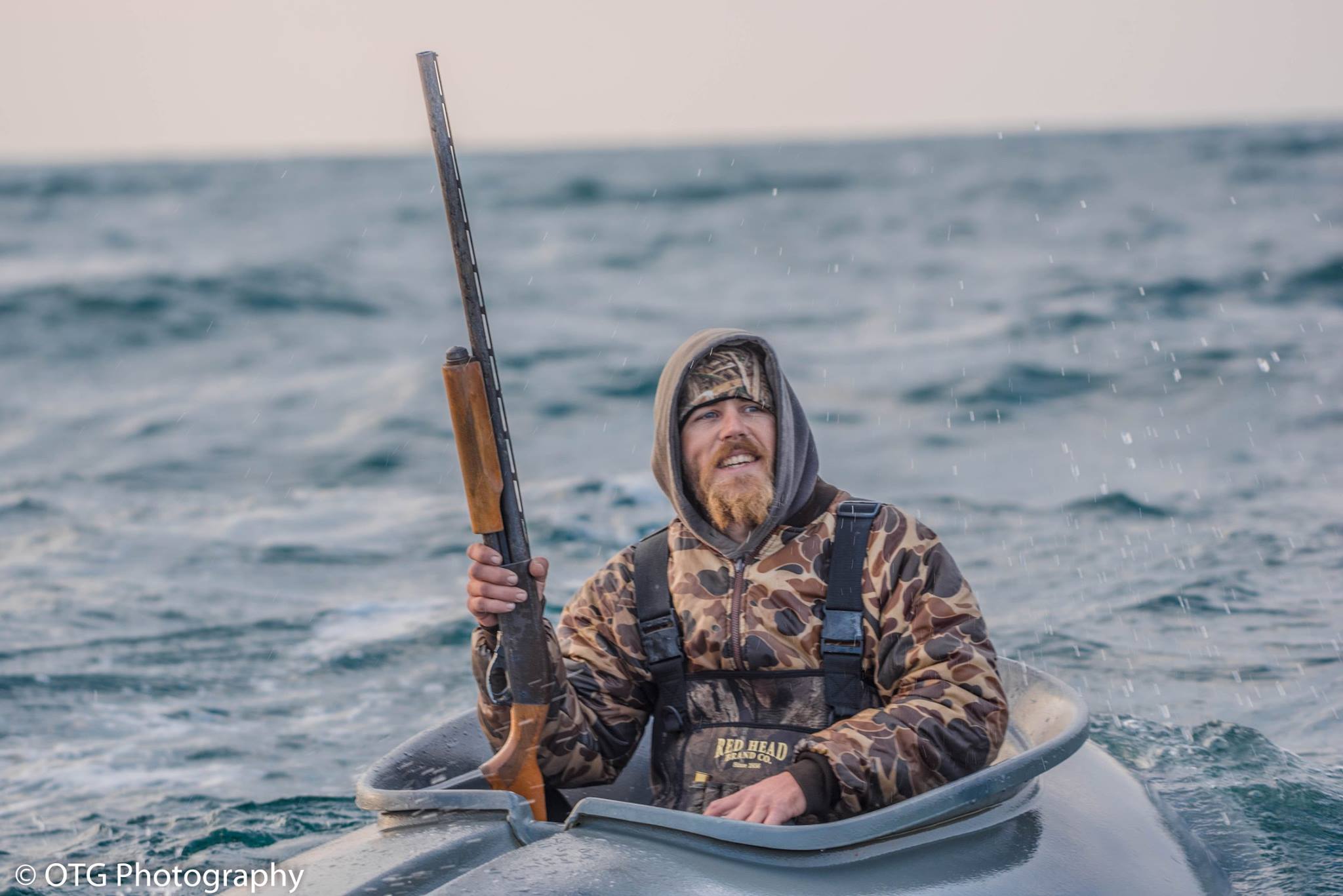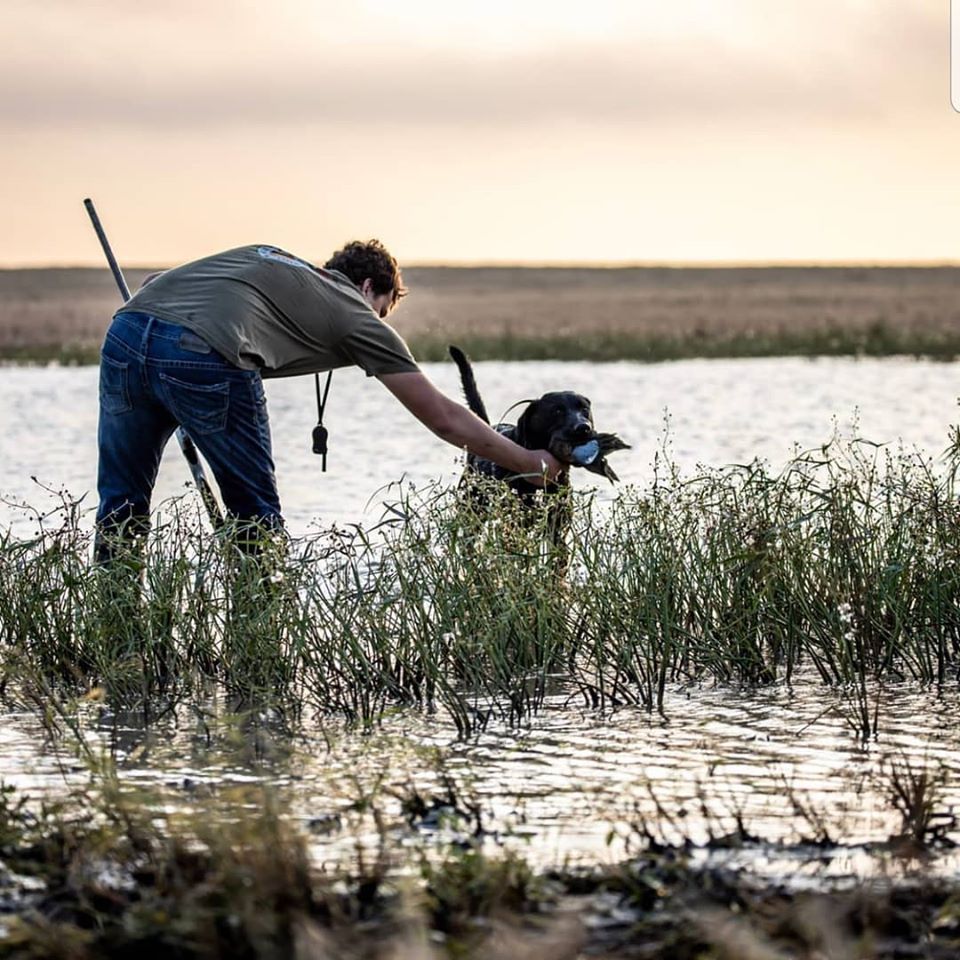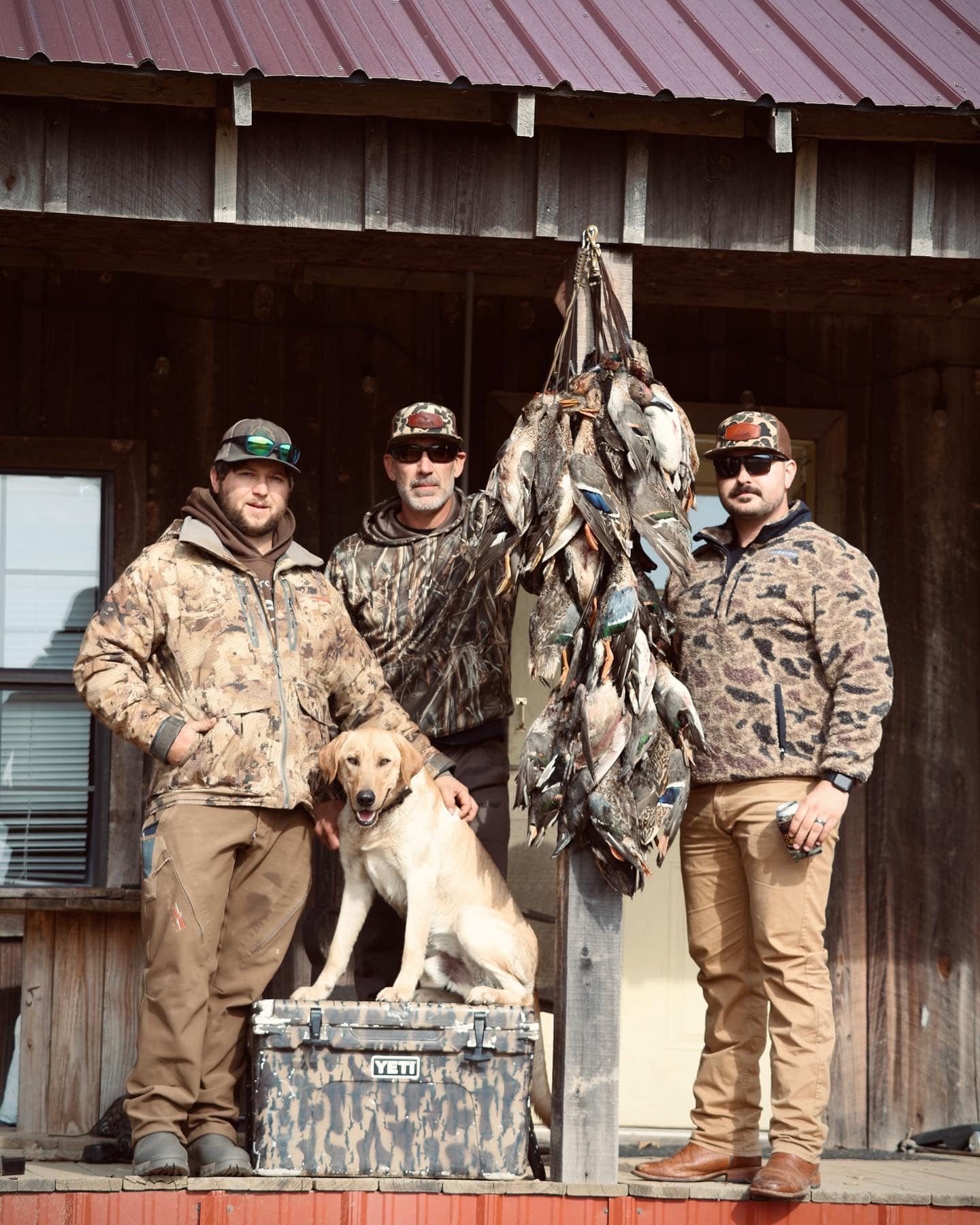Hunting and fishing operate on sets of rules. Rules are laid out plainly and provide no gray area regarding the right thing to do. But being a sportsman is more nuanced than just following the rules. Sportsmanship is a set of unspoken guidelines that can make or break a guided hunt. To show hunters the correct behaviors and attitudes while in the field, we’re sharing a series of articles on “Guided Hunt Etiquette.”
Waterfowl hunting is a fantastic option for a guided hunt. Utilizing a guide’s knowledge of the waterways and their custom-tailored spread of decoys will stack the odds in your favor for bringing home a stringer of ducks. That said, even the best-laid plans don’t always work out.
Keep an attitude of learning and positivity. Guides have seen more birds decoyed and more bad shots than anyone else, so their suggestions should be taken as sage advice. Also, nobody wants to sit in a duck blind with a huffy whiner, so focus on the good: You could be at work instead of out hunting.
We’ve compiled a list of best practices from our partners in the industry to make sure you and your guide have a great trip.
Photo Credit: All Inclusive Arkansas Duck Hunt / Brinkley / Arkansas
Before the Hunt
Any time you book a hunt, it is important to tell your guide about what you are looking for in a hunt. If you are a new duck hunter and want to shoot any legal bird, your guide will work differently than looking to check off a specific species for your #42 list.
Prior to your hunt, you should try out all your gear. A wet January day is not the time to find out your gloves don’t fit. This will also give you the chance to identify gaps so you’re not scrambling last minute to find a new pair of waders or a dry-bag for your gear.
If bringing your own firearm, don’t forget to pattern your shotgun with the loads you will hunt with. You may break clays with #6s but a teal moving at Mach 2 is no easy target with #3 steel. It’s also good to look into regulations regarding the type of shot permitted, and double check that you’re not using lead shot. Even having lead shot on you can trigger huge fines if checked by the game warden.
During the Hunt
On a guided waterfowl hunt, etiquette plays a significant role in ensuring a successful and enjoyable experience for everyone involved. Here are some key points to keep in mind:
1. Respect the Guide’s Expertise
- Follow Instructions: Trust the guide’s experience and knowledge. They know the area, the birds, and the best strategies for success.
- Ask Questions: If you’re unsure about something, ask your guide. They are there to help and educate you.
2. Be Punctual
- Arrive on Time: Waterfowl hunting often requires early starts. Being on time shows respect for everyone’s schedule.
- Prepare in Advance: Have your gear ready the night before to avoid delays.
3. Understand the Safety Protocols
- Firearm Safety: Always practice proper firearm safety. Keep your muzzle pointed in a safe direction, and your safety on until ready to shoot.
- Listen to Safety Briefings: The guide will likely review safety rules before the hunt begins. Pay close attention.
4. Be Considerate in the Blind
- Keep Noise to a Minimum: Waterfowl can be easily spooked, so avoid unnecessary noise.
- Mind Your Movement: Sudden movements can alert birds. Stay still when the birds are approaching.
- Share Shooting Opportunities: Don’t hog the shooting; share the opportunities with your fellow hunters.
5. Respect the Game and Environment
- Adhere to Bag Limits: Stick to the legal bag limits and avoid overharvesting.
- Pick Up Spent Shells: Leave the environment as you found it by picking up spent shells and any trash.
- Respect Wildlife: Follow the guide’s advice on handling and dispatching the birds humanely.
6. Communication and Cooperation
- Coordinate with Fellow Hunters: Good communication helps ensure everyone knows when to shoot and when to hold off.
-
Don’t party shoot: Limits on birds are personal limits. Just because your guide is with you doesn’t mean you can shoot a two man limit.
-
Species Identification: If you are hunting an area where multiple species are present don’t be afraid to ask your guide for help identifying birds so you shoot the correct number of birds.
- Help with Decoys: Offer to help set up and pick up decoys. It’s a part of the hunt and shows you’re willing to contribute.
7. Tipping the Guide
- Tip Appropriately: It’s customary to tip your guide, usually 10-20% of the cost of the hunt, depending on the service provided.
8. Show Appreciation
- Thank the Guide: Acknowledge their efforts and express your gratitude. A simple thank you goes a long way.
- Provide Feedback: If asked, provide honest and constructive feedback on your experience.
Photo Credit: Early Season Waterfowl Hunt / Claflin / Kansas
Tips from the Experts
Maintaining good etiquette not only helps ensure a smooth hunt but also builds positive relationships for future trips. Here’s what the guides on Venku have to say about hunter etiquette:
- Jerry, who guides out of Arkansas, suggests reviewing requirements or gear lists. He also suggests checking hunting license requirements before your hunt and showing your guide the required licenses before leaving, even if not asked. Showing your guide you’ve done your homework will put everyone at ease.
- From Capt Chris in Michigan: “If the Captain suggests it’s too rough to go out or that it won’t be enjoyable and it would be best to reschedule, take their advice.” Guides and captains feed their families with trips. If they tell you to pick a different day, they say it for a good reason.
- If you do go out, it’s essential to understand that not every day is a banner day. “It’s hunting, not killing.”, as Arkansas guide Kade enjoys saying.
- Similar words are echoed from Kansas guide Trey: “Always be courteous and understanding! Human beings can’t control birds.”
Photo Credit: Guided Duck Hunt / Jonesboro / Arkansas
After the Hunt
After the hunt, while you’re still excited about your trip, don’t forget to leave a review about your experience, and always remember to tip your guide. Reviews and tagging your guide in pictures from your trip helps give their business more exposure. Sharing an honest review is also courteous to your fellow hunters – even if you didn’t kill any birds, but you still had a great time, your review could help clinch the deal for someone else looking to book.
It may seem like a small gesture, but a few sentences and a positive review carries great value for the outfitter’s online reputation and may help be the deciding factor for other hunters.
Just like learning duck calls, and how to correctly lay out blinds, this is just the tip of the iceberg for etiquette. By taking the advice of the guides above you are sure to put yourself in the right frame of mind to learn and build a solid relationship with your guide.
Have you been on a guided waterfowl hunt? What’s a tip that you would add to the list?




